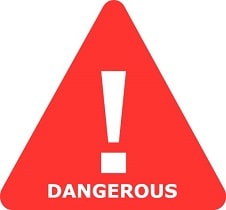Is African Cherry Safe in Breastfeeding
Question
I am a breastfeeding mother and i want to know if it is safe to use African Cherry? Is African Cherry safe for nursing mother and child? Does African Cherry extracts into breast milk? Does African Cherry has any long term or short term side effects on infants? Can African Cherry influence milk supply or can African Cherry decrease milk supply in lactating mothers?
African Cherry lactation summary

- DrLact safety Score for African Cherry is 7 out of 8 which is considered Dangerous as per our analyses.
- A safety Score of 7 indicates that usage of African Cherry may cause toxic or severe side effects in breastfed baby.
- Our study of different scientific research indicates that African Cherry may cause moderate to high side effects or may affect milk supply in lactating mother.
- Our suggestion is to use safer alternate options rather than using African Cherry .
- Usage of African Cherry is in contradiction to breastfeeding hence if it is must to use African Cherry and there is no better alternative available then breastfeeding shall be stopped permanently or temporarily.
- Score calculated using the DrLact safety Version 1.2 model, this score ranges from 0 to 8 and measures overall safety of drug in lactation. Scores are primarily calculated using publicly available case studies, research papers, other scientific journals and publically available data.
Answer by Dr. Ru: About African Cherry usage in lactation
Bark is used. It contains alkanols, trypertens, phytosterols and flavonoids.Unproved efficacy on urinary disturbances related to prostatic adenoma. Itlowers Prolactin level and inhibits Prostaglandin synthesis. The CommissionE of German Ministry of Health does not recommend the use of African cherrytree at all.
Alternate Drugs for Phytotherapy, Systemic Use
Chasteberry(Unsafe)
Chamomile(Safe)
Echinacea(Low Risk)
Alfalfa(Unsafe)
Dong Quai(Low Risk)
Cranberry(Safe)
Licorice(Unsafe)
Rhubarb(Low Risk)
Lavender(Low Risk)
Sweet Briar(Safe)
Barberry(Dangerous)
Carob(Safe)
Common Poppy(Unsafe)
Angelica(Unsafe)
Star Anise(Dangerous)
Mugwort(Unsafe)
Edible Burdock(Low Risk)
Box(Unsafe)
Boldo(Unsafe)
Bromelains(Safe)
Calaguala(Safe)
Caralluma(Low Risk)
Carrageen(Low Risk)
Horse Chestnut(Safe)
Blue-Cohosh(Dangerous)
Indian Pennywort(Safe)
Squisandra(Low Risk)
Prickly Pear(Safe)
Black-Cohosh(Unsafe)
Horsetail(Unsafe)
Colocynth Pulp(Dangerous)
Ergot Fungus(Dangerous)
Ephedra(Unsafe)
Steviol(Safe)
Eucalyptus(Unsafe)
Eyebright(Safe)
Flowers(Low Risk)
Fucus(Unsafe)
Goat´s Rue(Unsafe)
Bearberry(Unsafe)
Guarana(Low Risk)
Devil’s Claw Root(Low Risk)
Herniary(Low Risk)
St. John´s Wort(Safe)
Hyssop(Unsafe)
Syrup Of Ipecac(Low Risk)
Jin Bu Huan(Dangerous)
Kava Kava(Dangerous)
Clubmoss(Unsafe)
Maca(Safe)
Common gromwell(Unsafe)
Nux Vomica(Dangerous)
White Nettle(Safe)
Papain(Low Risk)
Passion Flower(Low Risk)
Scots Pine(Unsafe)
Pycnogenol(Safe)
Pennyroyal(Unsafe)
Primrose(Safe)
Radish(Safe)
Ironwort(Low Risk)
Liquorice(Unsafe)
Rooibos(Safe)
Rose Hip(Safe)
French rose(Safe)
Butcher´s Broom(Safe)
Willow(Safe)
Soy(Low Risk)
Herbal Teas(Low Risk)
Rock Tea(Low Risk)
Lime Flower(Safe)
Tormentil(Safe)
Meadow-Sweet(Low Risk)
Golden Rod(Safe)
Sarsaparilla(Low Risk)
Sweet Flag(Unsafe)
Saw palmetto(Low Risk)
Common gum cistus(Low Risk)
Cat's Claw(Low Risk)
Milk Vetch(Low Risk)
Chinese angelica(Low Risk)
White Mulberry(Low Risk)
Di Huang(Low Risk)
Zi Wan(Unsafe)
Dang Shen(Low Risk)
Reishi(Low Risk)
glycyrrhizic acid(Unsafe)
Glycyrrhizin(Unsafe)
American cranberry(Safe)
Carrageenan(Low Risk)
Carrageenin(Low Risk)
Verbena officinalis(Low Risk)
Passion Vine(Low Risk)
Chaste Tree(Unsafe)
Sweet Cane(Unsafe)
Sweet root(Unsafe)
Irish Moss(Low Risk)
Bromelain(Safe)
Bromelin(Safe)
Acorus calamus(Unsafe)
